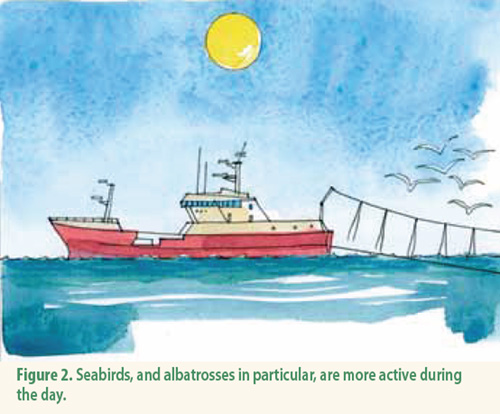BirdLife International’s Albatross Task Force continues to be active conducting research and making observations from fishing vessels at sea. In recent blogs you can read about hook pod trials in Brazil, seabirds at sea in winter off South Africa, and looking at weighted lines on high-seas tuna longliners in the southern Indian Ocean.

Streamer lines and night-setting both reduce seabird mortality in longline fisheries
Earlier in the year, representatives of the ATF from its eight teams in Argentina, Brazil, Chile, Ecuador, Namibia, Peru, South Africa and Uruguay met with BirdLife’s Global Seabird Programme regional co-ordinators in the United Kingdom for the first time. The workshop discussed progress and the way forward towards the target of reducing seabird bycatch by 80% within the fisheries in the eight southern-hemisphere countries where the ATF is currently active (click here).
With thanks to Rory Crawford and Oli Yates for information.
John Cooper, ACAP Information Officer, 14 July 2013

 English
English  Français
Français  Español
Español